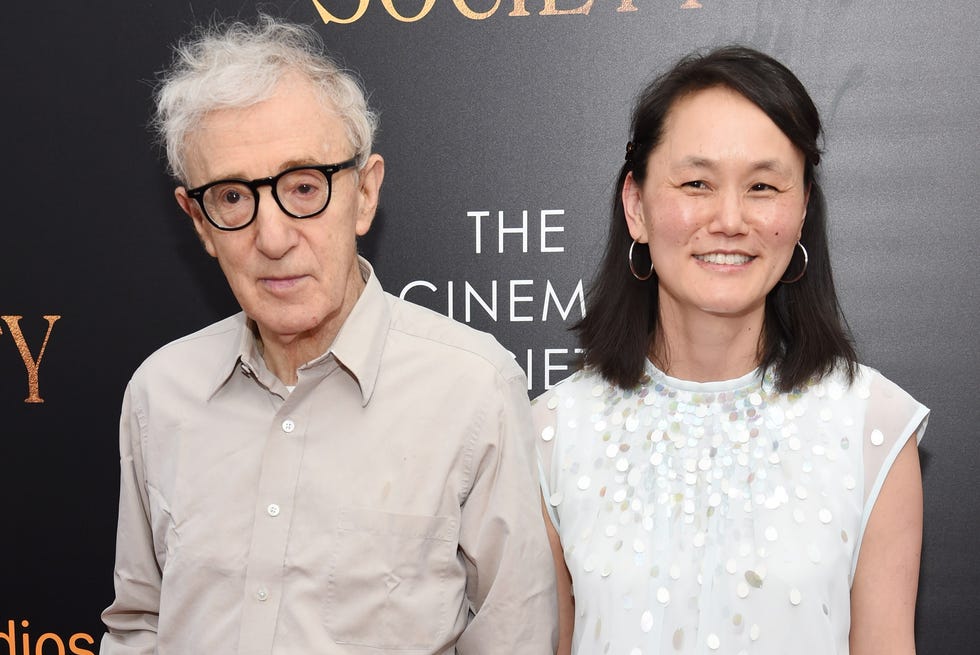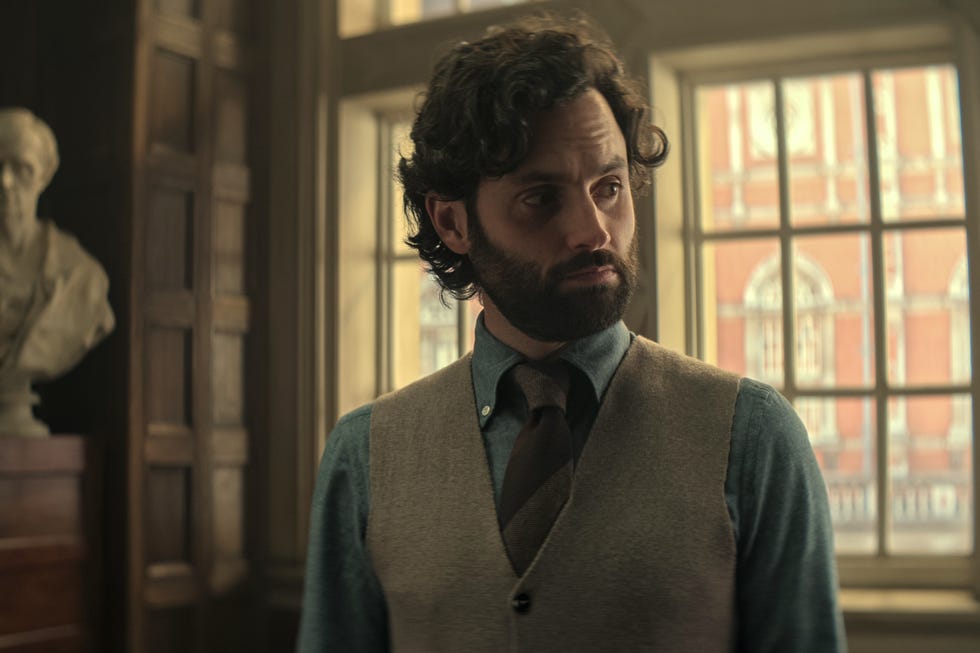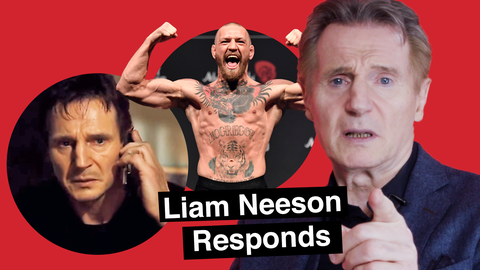Anyone who’s seen You—the darkly comedic thriller that was cancelled on Lifetime before moving to Netflix and becoming a huge hit—can tell you a few things with certainty about lead character Joe Goldberg (Penn Badgley).
First: Joe is a stalker. Second: Joe is… well, Joe is a murderer. We can’t debate these things! But there’s one more indisputable fact: Joe is a well-read, well-informed guy. It’s true! Joe Goldberg contains multitudes, sorry to say it folks. He’s a stalker/murderer who’s smart, keeps up with current events and cultural conversations, and has good taste in literature.
This entire dynamic is perfectly encapsulated in the opening line of You‘s fourth season, as the episode “Joe Takes a Holiday” opens with Joe immediately grabbing our attention by quoting someone putting quite the twist on someone else’s quote: “As a problematic man appropriating a queer poet once said: The heart wants what it wants.”
Yikes. Let’s dig into that one a little bit, shall we?
Who said “The Heart Wants What It Wants”?
Let’s go through Joe’s quote one piece at a time. The original origin of ‘The Heart Wants What It Wants” comes from a letter that poet Emily Dickinson sent to Mary Bowles, wife of Samuel Bowles, who was the publisher and editor of a newspaper called The Springfield Republican between 1844 and 1878.
Dickinson’s letter, dated Spring 1862, opens with the following line:
“When the Best is gone
I know that other things are not of consequence
The Heart wants what it wants
or else it does not care”
In referring to Dickinson as “queer,” Joe is taking a leap into what’s been a long-gestating debate surrounding the famously-reclusive poet’s private life, stemming largely from a letter she wrote to her sister-in-law, Susan Gilbert. Her sexuality has long been a matter of debate, but many academics, such as this study from UNC Greensboro, suggest that “throughout Emily Dickinson’s publishing history there are evidences of attitudes on the part of her family, her editors, and her critics, all of which may be explained by the theory that the poet was homosexual. This theory is substantiated when one examines the letters and poems.”
Now, we must identify the “problematic” man who Joe suggests appropriated Dickinson’s language. And that man is Academy Award-winning filmmaker Woody Allen.
Allen, best known for writing and directing movies like Annie Hall and Midnight In Paris, has come under public scrutiny for numerous reasons, most notably being accused of sexually abusing his stepdaughter and marrying Soon-Yi Previn, who is the adopted daughter of his previous longtime romantic partner, Mia Farrow.
Allen’s use of “the heart wants what it wants” actually came in direct response to questioning around his relationship with Previn. In a 2001 interview with TIME, Allen—then 65—was asked whether he considered his relationship with Previn—then 31—to be “a healthy, equal relationship.”
He responded:
Well, who knows? It’s perfectly healthy. But I don’t think equal is necessarily a desideratum. Sometimes equality in a relationship is great, sometimes inequality makes it work. But it’s an equal-opportunity relationship. I mean, I’m not equal to her in certain ways.
The heart wants what it wants. There’s no logic to those things. You meet someone and you fall in love and that’s that.
It’s reasonable to assume that Dickinson’s words were not originally intended to be used in this context.
How does this all fit into You Season 4?
Glad you asked. This reference to open the season is, actually, a fairly perfect encapsulation of Joe Goldberg as a character, and sets up his primary internal struggle of both the season and the series as a whole. Joe is an incredibly thoughtful, and, for the most part, self-aware person. His narration is often clever, funny, and incredibly observant. Despite the horrible things we’ve seen him do over the course of the show, we still find ourselves along with him for the ride.
Even in this opening, he draws between the assumed “bad guys”—Allen is described as a “problematic man”—and, we imply, the person delivering the message and making the judgment—Joe himself.
Joe is aware enough to understand this, but, as in the rest of the Season 4 Part 1 Episodes, and, really, everything we’ve seen to this point, he has one major blind spot: again, himself. His narration and everything he ever says to his adversaries, whether it’s Love Quinn or the Eat the Rich Killer, is that, despite his stalking, despite his murdering, he’s not like them. He’s better.
And that’s where the struggle lies. Is he better? Is he really? That much remains to be seen.

Evan is the culture editor for Men’s Health, with bylines in The New York Times, MTV News, Brooklyn Magazine, and VICE. He loves weird movies, watches too much TV, and listens to music more often than he doesn’t.





Comments are closed.